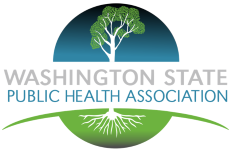Legislative Education Day: What Comes Next?By: Heather Thomas, MPA On February 7, more than 150 public health ambassadors from around the state gathered in Olympia for our annual WSPHA Legislative Education Day. The morning session kicked off with a welcome from WSPHA president David Reyes, followed by remarks from Secretary of Health John Wiesman. Secretary Wiesman shared his perspectives on a variety of public health issues at the state and federal level, in addition to taking questions from the audience. 
The rest of the morning was filled with short panels on Foundational Public Health Services and the importance of storytelling. Attendees were visited by Representative Laurie Jenkins from the 22nd District, as well as Representative Vandana Slatter’s legislative assistant Taemin Um from the 48th District, to help put people at ease when meeting with legislators and their aides. After lunch, teams met with over 100 legislators and staffers in four short hours. Packets of information from the Public Health is Essential campaign were distributed, amazing stories were shared, and democracy was on display for first-time attendees. But now what? WSPHA Legislative Education Day is just one day. What else can you be doing the other 364 days of the year to help make a difference for public health in Washington State? Here are some ideas on how to stay engaged, during and after session:
Past blogsLegislative Education Day
By Anne Burkland, Government Relations Specialist, Public Health Seattle and King County

February 1, 2018
Join public health officials from across the state and have your voice heard at our annual legislative education day on February 7, 2018.Your day will begin with Secretary of Health John Wiesman. You’ll also hear from state lawmakers and your colleagues who are leading the charge for more funding dedicated to public health. You’ll be provided talking points and an opportunity to develop and practice the key messages you want your representatives to hear. Read more
The Opioid Epidemic in Washington
The opioid epidemic has impacted every community in Washington State. Across the country, opioid overdose is now the leading cause of accidental death. But some counties are hit harder than others and disparities exist between how racial and ethnic groups are burdened with the epidemic. Solutions must be both based in local communities and supported across the state. Our Washington state opioid response plan calls on all of us, state government agencies, local health departments, professional groups, community organizations, health care systems, and others to work together on priority areas. Read more |


